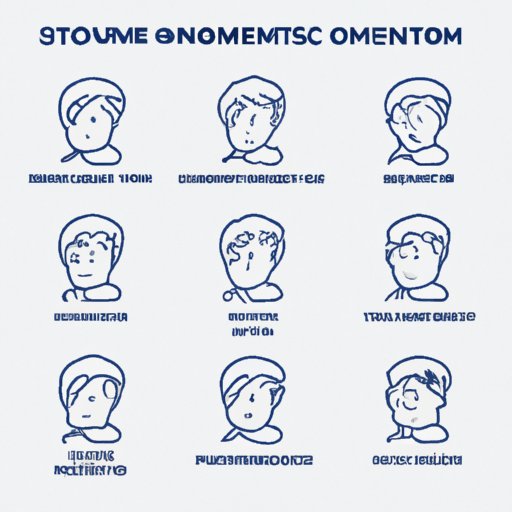
Introduction
Concussions are a type of traumatic brain injury that can occur from a blow to the head or body. They can affect people of all ages and can have serious consequences if left untreated. It is essential to recognize the signs of concussions and take appropriate action to get medical help. This article aims to provide a comprehensive guide to when concussion symptoms can begin to appear, how they differ from person to person, and what steps to take to manage them for a safe and speedy recovery.
A Comprehensive Guide to the Onset of Concussion Symptoms
Concussion symptoms vary from individual to individual and can manifest in different ways, making them challenging to predict. Symptoms could be physical, cognitive, or emotional, and their severity depends on the type and severity of the impact. Physical symptoms may include headaches, dizziness, nausea, or sensitivity to light and sound. Cognitive symptoms may involve memory loss, difficulty concentrating, and confusion. Emotional symptoms may include mood swings, anxiety, and irritability.

The Timeline of Concussion Symptoms: What to Expect and When
The onset of concussion symptoms can vary, but they usually start within the first 24 to 48 hours after the impact. In some cases, symptoms may appear immediately after an injury, while in others, they may take several hours or days to show up. It is crucial to take proper rest and hydration during this stage and avoid activities that may worsen the symptoms. Following the “return-to-play” protocol is essential to avoid any further damage to the brain. This involves gradually returning to physical activity after a period of rest and symptom management under the guidance of a medical professional.
From Impact to Indicators: How Quickly Can You Spot Concussion Symptoms?
Some immediate indicators of a concussion may include loss of consciousness, disorientation, nausea, or vomiting. Other symptoms may take some time to show up, such as headache, difficulty concentrating, and mood swings. It is essential to monitor and assess symptoms carefully over time using a symptom checklist or journal and seek medical help if the symptoms persist or worsen.
When to Seek Medical Attention for Concussion Symptoms
It is essential to seek medical attention whenever there are signs of concussion symptoms. Depending on the severity of the symptoms, one may decide to go to an emergency room, a doctor’s office, or a dedicated concussion clinic. Treatment may involve a concussion assessment, CT scan, cognitive assessment, and medication, among other options.
Delayed Onset: Why Some Concussion Symptoms Might Take Time to Appear
Delayed symptoms are the ones that may take some time, even days or weeks, to appear after the impact. They may be caused by individual factors such as age, gender, or pre-existing conditions. They may also be related to the type and severity of the impact, the extent of the damage to the brain, or past history of concussions. To reduce the risk of delayed symptoms, it is essential to avoid further impacts and get adequate rest and symptom management.
The Importance of Recognizing Early Signs of Concussion
Early recognition of concussion symptoms is crucial for a faster and more complete recovery. Family members and friends should look for warning signs such as slurred speech, dizziness, or irritability, and encourage the person to seek medical help. It is also important to be proactive in the prevention of concussion by wearing appropriate gear, practicing safe techniques, and following medical advice.
Preventing Prolonged Problems: Understanding the Start of Concussion Symptoms
Untreated or poorly managed concussion can have long-term effects such as memory loss, cognitive impairment, or depression. Prevention is the best strategy for minimizing the impact of concussion. This can involve wearing proper protective gear, practicing safe techniques, and following medical advice. Knowledge and awareness of concussion and its symptoms are also critical. Additional resources are available for individuals facing concussion challenges.





